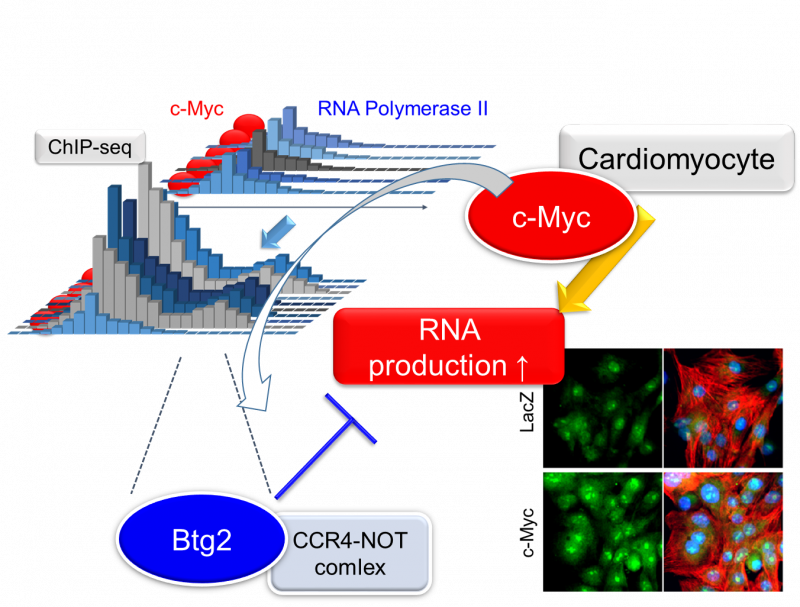Study identifies molecule that limits excessive expansion of heart muscle cells

When the heart is subjected to stress, such as high blood pressure, it responds by expanding, both at the level of the whole organ and some of its chambers, and also at the level of single cells. Although the swelling of heart muscle cells, called cardiomyocytes, has been investigated, the molecular mechanisms that promote and inhibit this process have remained unclear. Researchers centered at Osaka University have now identified a protein that restrains the speeding up of activity and expansion of cells that usually occur under stressful conditions. This novel finding explains how the establishment of oversized cells can be prevented in the heart muscle, which could lead to treatments to limit heart expansion linked to heart failure.
Cardiac hypertrophy occurs when the heart muscle is placed under higher stress than normal and needs to develop greater bulk to adapt. At the cellular level, cardiomyocytes are induced to increase size by speeding up production of proteins and other components. The production line from genes to proteins includes the intermediate of RNA, which forms an extra regulatory level determining the overall composition of proteins within a cell. Therefore, to understand the swelling of cardiomyocytes under stressful conditions due to increased production of proteins, it is necessary to clarify the overall regulation of RNA within these cells.
The new study has provided a major advance in this field by identifying the protein Btg2 as a global regulator of RNA within cardiomyocytes. By performing imaging of single cells, the induction of excessive expression of this protein within stressed cardiac tissue was found to reduce the size of cardiomyocytes, showing that Btg2 is a factor that limits cardiac hypertrophy.
"We first focused on the targets of the protein Myc, which is known to increase the size and anabolic activity of cardiomyocytes," says corresponding author Shuichiro Higo. "We found that Btg2 was especially strongly induced by Myc, but that these two proteins had opposite effects on the level of RNA in these cells. This suggests they are on opposing sides of a system regulating protein production and cell size."
Application of single-cell imaging in this study enabled the team to identify where Btg2 was active within the cell, which was combined with functional analysis to determine the mechanisms by which it induced a reduction in global RNA level. The findings showed that Btg2 interacts with cellular machinery that breaks down RNA, which explains its association with reduced protein production and, thus, smaller cells.
"We now have a much better understanding of the mechanisms by which heart cells can not only expand in response to stress, but also limit this expansion," Higo says. "We may be able to harness these mechanisms to reduce some of the problems associated with long-term cardiac hypertrophy and heart disease."
More information: Yuki Masumura et al. Btg2 is a Negative Regulator of Cardiomyocyte Hypertrophy through a Decrease in Cytosolic RNA, Scientific Reports (2016). DOI: 10.1038/srep28592


















